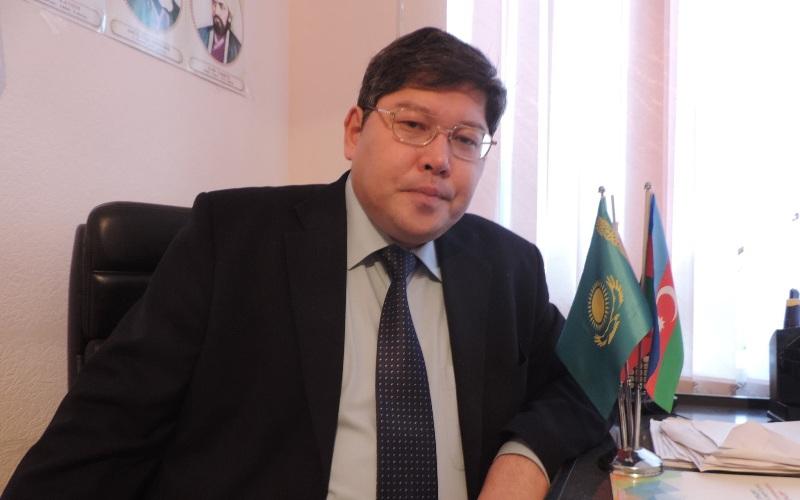Expert says OSCE MG format not yet fully exhausted its possibilities

By Laman Ismayilova
The OSCE Minsk Group, engaged in mediation for peaceful settlement of the Armenian-Azerbaijani Nagorno-Karabakh conflict, seems not willing to settle the conflict, Kazakh expert Daniyar Kasumov announced about this while talking to Day.Az.
“It's clear that no one pins hope on the OSCE Minsk Group to settle the conflict. They are engaged only in one thing- preservation of the status quo, even at the expense of systematic infringement of Azerbaijani people rights,” said Kasumov.
Armenia have occupied more than 20 percent of Azerbaijan's internationally recognized territory, including Nagorno-Karabakh and seven adjacent regions, having made territorial claims against its South Caucasus neighbor, which led to a lengthy war in the early 1990s.
Peace talks mediated by Russia, France, and the United States through the OSCE Minsk Group and on the basis of the Madrid Principles have been largely fruitless.
However, the Kazakh expert believes that the OSCE MG format has not yet fully exhausted its possibilities.
“I think that the OSCE format has not yet fully exhausted its possibilities. This organization is currently headed by Germany, a large, influential country with extensive experience in identifying and punishing persons responsible for crimes against humanity. The OSCE is chaired by one of the heavyweights of European diplomacy - Frank-Walter Steinmeier. The motto of the German presidency is: " Renewing Dialogue, Rebuilding Trust, Restoring Security”, he said, noting that this gives some hope for the conflict resolution.
Speaking about the possibilities for conciliation between Armenia and Azerbaijan, he voiced belief that after the liberation of the temporarily occupied territories of Azerbaijan, the Nagorno-Karabakh conflict will be resolved.
The expert also spoke about the Khojaly genocide, committed by Armenian militaries back in February 1992, noting that perpetrators of the Khojaly genocide have probably got a guarantee of personal inviolability.
“Nagorno-Karabakh separatists probably got permit from a third party in order to implicate Baku in conflict and cause a split in Azerbaijani society. That is why they were fully confident of their impunity. Otherwise would they openly brag to the world about their "feats"?", Kasumov said.
However, the expert said, the situation developed in a completely opposite direction. Azerbaijani people have become more cohesive and defended its statehood.
Khojaly, the second largest town in the Nagorno-Karabakh region of Azerbaijan, came under intense fire from the towns of Khankendi and Askeran already occupied by the Armenian armed forces in 1992.
As many as 613 civilians mostly women and children were killed in the massacre, and a total of 1,000 people were disabled. Eight families were exterminated, 25 children lost both parents, and 130 children lost one parent. Moreover, 1,275 innocent people were taken hostage, and the fate of 150 of them remains unknown.
When Thomas de Waal, a senior associate at Washington DC-based Carnegie Endowment for International Peace, interviewed Serzh Sargsyan back in 2000, the then-Armenian Defense Minister Sargsyan confessed that the Armenian army had indeed carried out an ethnic cleansing campaign in the Nagorno-Karabakh region in order to achieve its goals.
“Before Khojaly, the Azerbaijanis thought that they were joking with us; they thought that the Armenians were people who could not raise their hand against the civilian population. We were able to break that [stereotype]. And that’s what happened,” Sargsyan said.
---
Follow us on Twitter @AzerNewsAz
